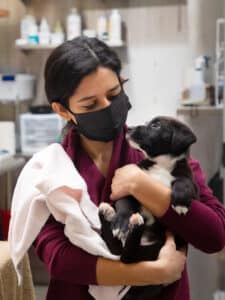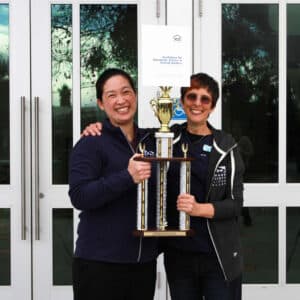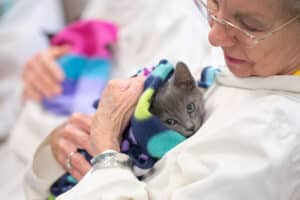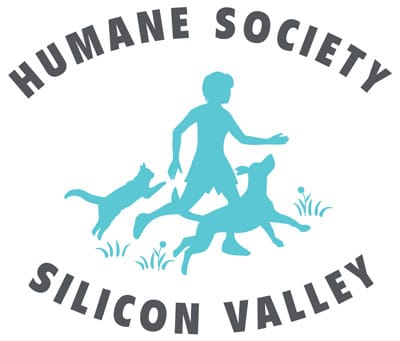
In 2009, Humane Society Silicon Valley proudly opened the doors of the Peter Detkin and Michelle Oates Detkin Animal Community Center in Milpitas. This groundbreaking shelter was the first of its kind, shifting the paradigm from being a warehouse for stray animals to becoming a welcoming facility that is equipped to meet the individual needs of each animal and person we serve.
 Around the same time, a group of progressive members of the Association of Shelter Veterinarians convened a task force to address a critical need of shelters across the nation. Animals were often living in appalling conditions in part because there was no central source of guidance for shelter professionals. Most of these veterinarians had personally witnessed situations where animals that were happy and healthy when they entered a shelter deteriorated to the point they had to be humanely euthanized. The task force resolved to create a set of evidence-based guidelines to help animal welfare organizations improve safety by reducing overcrowding, stress, and disease. Ensuring that shelter animals consistently receive appropriate care would lower the risk of harm and prevent unnecessary suffering.
Around the same time, a group of progressive members of the Association of Shelter Veterinarians convened a task force to address a critical need of shelters across the nation. Animals were often living in appalling conditions in part because there was no central source of guidance for shelter professionals. Most of these veterinarians had personally witnessed situations where animals that were happy and healthy when they entered a shelter deteriorated to the point they had to be humanely euthanized. The task force resolved to create a set of evidence-based guidelines to help animal welfare organizations improve safety by reducing overcrowding, stress, and disease. Ensuring that shelter animals consistently receive appropriate care would lower the risk of harm and prevent unnecessary suffering.
After two years of work, the group agreed upon 543 specific recommendations that were published as the first edition of ASV Guidelines for the Standards of Care in Animal Shelters. At that time no shelter in the world came close to meeting all the guidelines, a goal that many said would be impossible to achieve. HSSV took on the challenge to demonstrate that all of the guidelines were achievable and that a shelter could deliver a model standard-of-care.
 Under the leadership of Dr. Cristie Kamiya, our Chief of Shelter Medicine, we embarked on a journey to make sure the facilities, policies, and procedures at HSSV were providing the best possible care for our animals. By 2017, our team had successfully implemented the changes required to meet or exceed all of the 543 guidelines. Dr. Kate Hurley, a co-author of the ASV guidelines and Director of the UC Davis Koret Shelter Medicine Program, was invited to audit the site and confirm that HSSV had become the world’s first model shelter.
Under the leadership of Dr. Cristie Kamiya, our Chief of Shelter Medicine, we embarked on a journey to make sure the facilities, policies, and procedures at HSSV were providing the best possible care for our animals. By 2017, our team had successfully implemented the changes required to meet or exceed all of the 543 guidelines. Dr. Kate Hurley, a co-author of the ASV guidelines and Director of the UC Davis Koret Shelter Medicine Program, was invited to audit the site and confirm that HSSV had become the world’s first model shelter.
A few years later, a group including Dr. Hurley, Dr. Kamiya, and other leaders in the field was tasked to update the guidelines based on new research, advances in shelter medicine, and practical experience over the past decade. In 2022, the second edition of the guidelines was released, with a broader approach based on the Five Domains Model which considers the need to create positive experiences in addition to mitigating negative ones within the domains of nutrition, environment, health, behavior, and mental state.
 As best practices evolve, HSSV continues to improve our facilities, policies, and procedures to provide the highest standards of care. Ultimately, our goal is to save as many lives as we can by caring for the homeless animals in our own community, providing direct assistance to partner organizations across California, and developing innovative new approaches that can be implemented by shelters and rescues across the nation.
As best practices evolve, HSSV continues to improve our facilities, policies, and procedures to provide the highest standards of care. Ultimately, our goal is to save as many lives as we can by caring for the homeless animals in our own community, providing direct assistance to partner organizations across California, and developing innovative new approaches that can be implemented by shelters and rescues across the nation.
